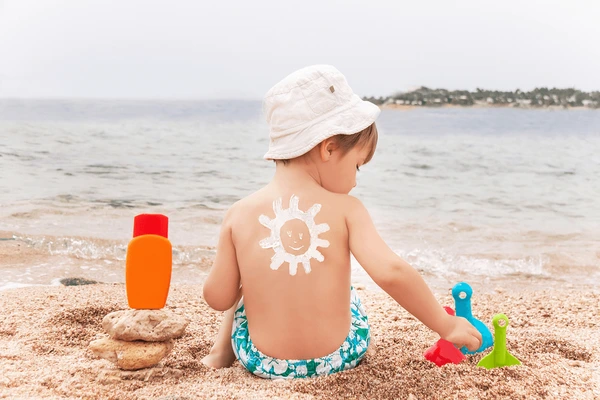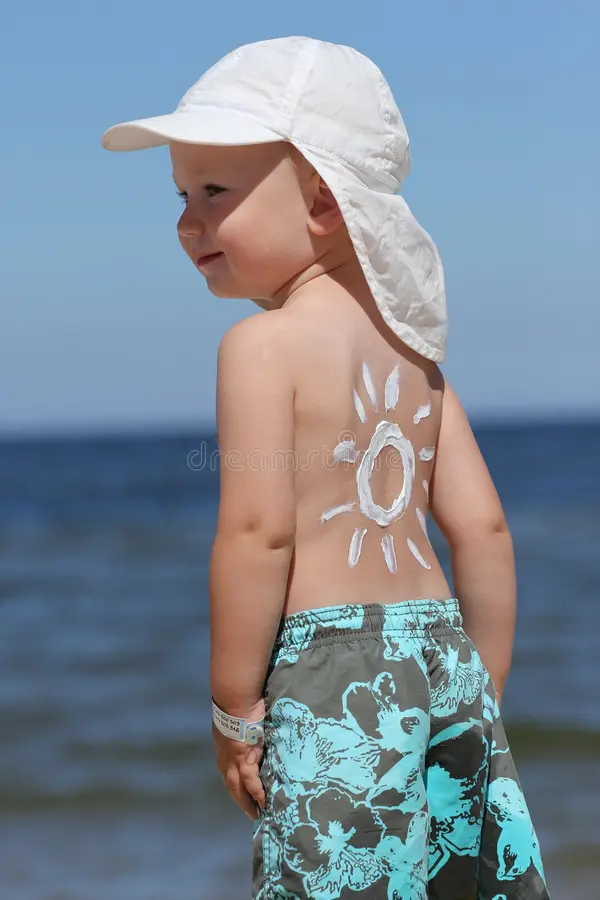
What is Sunscreen is an essential part of skincare, protecting skin from harmful UV rays. It works by absorbing harmful rays, providing protection from harmful UV rays. Common questions about sunscreen work include its duration, expiration date, and benefits.
Sunscreen is a crucial tool in protecting skin from UVA and UVB rays, preventing early signs of skin aging and skin cancer. It can also provide extra moisture and beneficial ingredients like niacinamide and ceramides to restore the skin’s natural protective barrier. However, sunscreen alone is not enough, especially when spending time outdoors. For comprehensive sun protection, it’s essential to wear protective clothing, seek shade, and avoid direct sun exposure during mid-day hours. Combining sunscreen with other sun protection measures is crucial for preventing skin cancer and promoting overall health.
What is Sunscreen?
Table of Contents
How does sunscreen work?

Sunscreen products provide broad-spectrum protection against UVA and UVB rays, preventing sunburn and disrupting cell growth and function. Sunscreens work by sinking into the skin’s top layers, absorbing UV radiation before damaging cells. Chemical-based sunscreens absorb UV radiation, while mineral sun filters like zinc oxide and titanium dioxide create a barrier on the skin’s surface, reflecting UV rays off. Some sun protection products combine both chemical and mineral sun filters for a comprehensive solution. Overall, sunscreen products are essential for preventing sunburn and protecting skin.
How long does sunscreen last?
The recommended amount of sunscreen for the entire body is one ounce, which is effective for up to two hours. It’s important to reapply after swimming, sweating, or toweling off, and use water-resistant sun protection products as directed. Sunscreens have an expiration date on the packaging, but exposure to sunlight and extreme heat can reduce their effectiveness well before the date. Therefore, it’s important to protect your sunscreen from excessive heat and direct sun to ensure its continued effectiveness. Remember, sunscreens are important for protecting your entire body.
Baby sun protection is crucial for maintaining their delicate skin’s safety.

The baby is a crucial part of the family, and understanding the best ways to protect them from the sun is essential.This article provides information on baby sunscreen age guidelines, sun protection benefits, and other essential details.
How is Baby Skin Different?
The outmost layer of dead skin cells in babies, the stratum corneum, helps protect the body from external irritants. This layer is thinner than that of adults, making babies more sensitive to sunburn. A moisturizer with ceramides helps maintain the skin’s barrier, preventing further damage such as dehydration, fever, blisters, infections, and heatstroke.
When Can Babies Wear Sunscreen?
The FDA recommends using sunscreen for babies under six months old, as they are sensitive to sun exposure. To ensure their safety, babies should be kept in the shade and dressed in long-sleeved, pants, wide-brimmed hats, and sunglasses. A lightweight, breathable, full-body onesie in a bright color is ideal, as white and pastel colors can allow more UV rays to reach the skin. For babies older than six months, broad spectrum, water-resistant, physical- or chemical-based UV filters are recognized as safe and effective by the FDA, but it is recommended to keep, them in the shade and covered’ with clothing.
What to search for in a sunscreen for babies
The FDA does not have specific guidelines for baby sunscreen, so it’s best to consult with a dermatologist or pediatrician. Sunscreen should have an SPF of at least 30, provide broad spectrum protection against UVA and UVB rays, and be water-resistant for 40 or 80 minutes. Some sunscreens are specially-formulated with ingredients like ceramides and soothing niacinamide to enhance skin benefits.
Baby sun protection pointers

Baby sunscreen is a crucial skincare product for protecting your baby from harmful UVA rays. It is essential to keep an eye on your baby after applying sunscreen to prevent them from licking it off their hands or fingers. It is crucial to avoid applying sunscreen near their eyelids and to follow the directions on the label if spending prolonged time in the car during daylight hours. Placing the car seat in the middle of the back seat can reduce exposure, while applying a UV-blocking film to all car windows can block nearly 100% of the sun’s damaging rays, protecting the entire family.
IN SHORT
Sunscreen Overview
• Essential part of skincare, protecting skin from harmful UV rays.
• Prevents early signs of skin aging and skin cancer.
• Provides extra moisture and beneficial ingredients like niacinamide and ceramides.
• Essential for comprehensive sun protection, combined with protective clothing, shade, and avoidance of direct sun exposure.
Sunscreen Work
• Provides broad-spectrum protection’ against UVA and UVB rays.
• Sinks into skin’s top layers, absorbing UV radiation before damaging cells.
• Chemical-based sunscreens absorb UV radiation.
• Mineral sun filters like zinc oxide and titanium dioxide reflect UV rays off.
Sunscreen Lifespan
• Recommended amount for entire body is one ounce, effective for up to two hours.
• Reapply after swimming, sweating, or toweling off.
• Sunscreens have an expiration date on the packaging, but exposure to sunlight and extreme heat can reduce their effectiveness.
Baby Sun Protection: Safeguarding Their Delicate Skin
Understanding Baby Skin
• The stratum corneum, the outermost layer of dead skin cells, protects the body from external irritants.
• This layer is thinner than adults, making babies more sensitive to sunburn.
• A moisturizer with ceramides helps maintain the skin’s barrier, preventing further damage.
When to Use Sunscreen
• FDA recommends avoiding sun exposure and using sunscreen in babies under six months.
• For babies older than six months, broad spectrum, water-resistant UV filters are safe and effective.
What is sunscreen? What is Sunscreen?What is Sunscreen?What is Sunscreen?What is Sunscreen?What is Sunscreen?What is Sunscreen?
